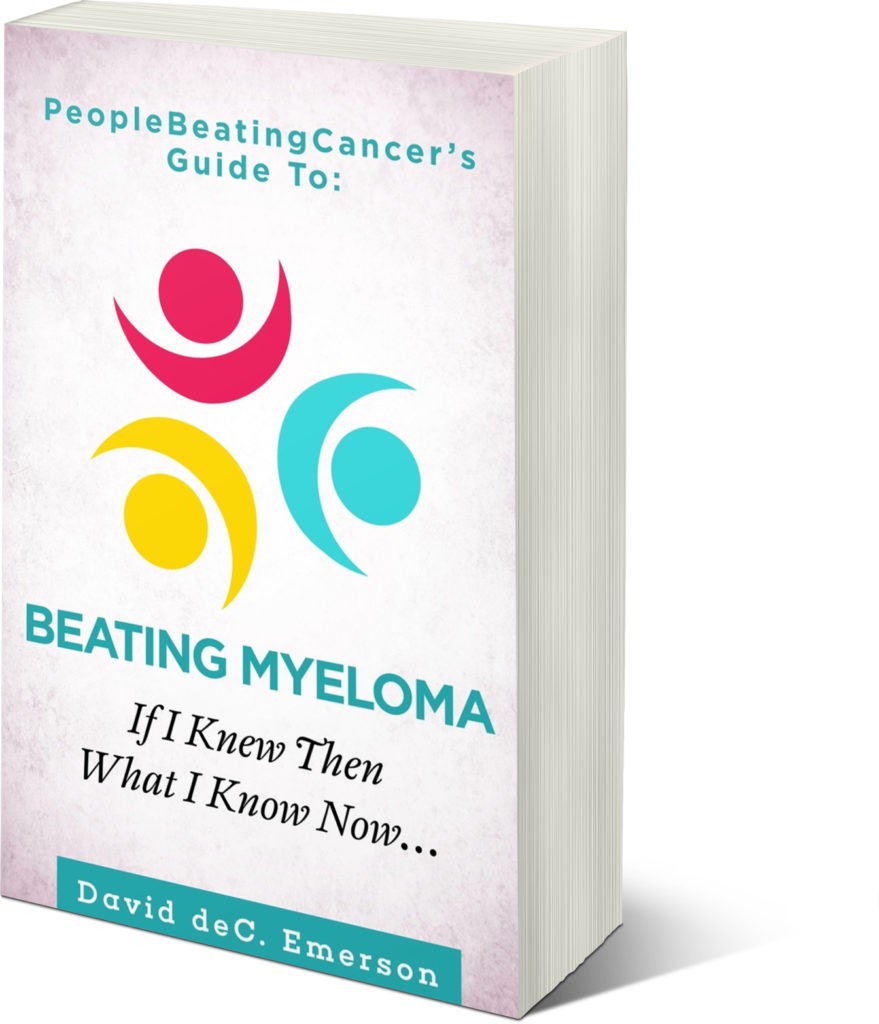“Although PTSD is primarily known to develop in individuals following a traumatic event such as a serious accident or natural disaster, it can also occur in patients diagnosed with cancer.”
My name is Alex Emerson, a 19 year old who’s dad is a long-term multiple myeloma survivor. My dad works on a blog that covers all things myeloma. While I’m home for the summer, dad asked me to write blog posts as well. The first thing he asked me to do was write down my thoughts about an article titled “Many Cancer Survivors Are Living with PTSD.”
This article states “patients with cancer experienced post-traumatic stress disorder (PTSD) several months after diagnosis, and many of these patients continued to live with PTSD years later.” (The Caregiver Space)

If I hadn’t been so familiar with the mental trauma caused by cancer than this might come as a surprise to me, and it did when I learned about this phenomena a few years ago. When my dad first told me that he was certain he had PTSD, I thought he was being melodramatic. If someone had PTSD, it meant that they had seen the unspeakable horrors of war, and cancer was a traumatic experience, but not on the same level as Vietnam. Perhaps I didn’t want to believe my dad was mentally unwell, he seemed sharp as a tack. Now, I can say that my dad suffers from PTSD without a doubt. The mental illness can be caused by any experience traumatic enough, like a natural disaster and the long and grueling process of chemo and other cancer therapy is no exception.
My dad shows tell tale signs of PTSD that I have come to recognize. Probably the biggest example of this is his dramatic shift in diet post cancer. His diet and nutritional supplementation function as a sort of coping mechanism because my dad lives in fear of his cancer relapsing. He went from a man with a regular diet to what you might call a heath-nut. Our pantry at home is stocked full of different vitamins, cod liver oil, and powders, filled with amino acids and antioxidants, that help lower risk of any given health problem. He always talks about the importance of minimizing risk. Low cholesterol means lower risk of heart disease, taking certain medications puts you at risk of side effects, etc.
I assume that this was a result of his brush with death. Looking death in the face was a wake up call, and now he’s hyper-attentive to anything thats a potential health risk. You could say that he fears death more than most people because he’s been so close to it. This is change was good in many ways, but still comes from a place of trauma and fear.
Another example of my dad’s PTSD is how easily he is startled. If I walk into a room and he’s not expecting it, he’ll gasp. The tiniest surprise makes him jump a little, which is a result of the PTSD anxiety.
“Many cancer patients believe they need to adopt a ‘warrior mentality’, and remain positive and optimistic from diagnosis through treatment to stand a better chance of beating their cancer. To these patients, seeking help for the emotional issues they face is akin to admitting weakness,” said Dr. Chan. “There needs to be greater awareness that there is nothing wrong with getting help to manage the emotional upheaval—particularly depression, anxiety, and PTSD—post-cancer.” (The Caregiver Space)
Dr. Chan’s words are something that survivors and caregivers should keep in mind. Cancer is a battle. It’s cruel, sometimes bleak, and you need to have a fighting mentality in order to get through such a process. This fighting mentality is everywhere in the world of cancer. Fighting terminology is hard to avoid when talking cancer. It’s war on cancer this, kill cancer that. There are shirts with phases on them like “kick cancers ass!” While this kind of fighting spirit is very necessary in the face of cancer, that can lead to repressing emotion which can manifest itself in the form of PTSD. I imagine that this is what happened to dad (I was born right around the time he went into remission.) This is all to reiterate that if you are a survivor than you went through a traumatic experience and would benefit from psychiatric help. If you’re a caregiver than you should make the person under your care feel safe and free to talk about their experience with cancer, so that they don’t bottle it up inside themselves.
Alex Emerson
- Cancer Caregiver
- Blogger
- PeopleBeatingCancer
Recommended Reading:
“A recent study showed approximately one-fifth of patients with cancer experienced post-traumatic stress disorder (PTSD) several months after diagnosis, and many of these patients continued to live with PTSD years later. Published early online in CANCER, a peer-reviewed journal of the American Cancer Society, the findings highlight the need for early identification, careful monitoring, and treatment of PTSD in cancer survivors.
Although PTSD is primarily known to develop in individuals following a traumatic event such as a serious accident or natural disaster, it can also occur in patients diagnosed with cancer. Because PTSD in cancer has not been explored thoroughly, Caryn Mei Hsien Chan, PhD, of the National University of Malaysia, and her colleagues studied 469 adults with various cancer types within one month of diagnosis at a single oncology referral center. Patients underwent additional testing after six months and again after four years.
Clinical evaluations revealed a PTSD incidence of 21.7% at 6-months follow-up, with rates dropping to 6.1% at 4-years follow-up. Although overall rates of PTSD decreased with time, roughly one-third of patients initially diagnosed with PTSD were found to have persistent or worsening symptoms four years later.




